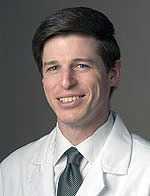April 7, 2009 - By Tracie White

Ronald Witteles
Cancer patients treated with potentially heart-damaging chemotherapy and radiation drugs are not receiving the required follow up testing and treatment for heart failure in everyday clinical practice, according to a new medical school study.
Oncologists who treat patients with certain cancer therapy agents such as anthracyclines, tyrosine kinase inhibitors and trastuzumab, are not routinely evaluating patients with echocardiograms before and after treatment let alone treating the cardiac problems that can arise, according to the study that was presented March 30 at the American College of Cardiology's annual scientific session in Orlando Fla.
'Our study was looking at what happens in the real world in terms of cardiac screening practices of cancer patients,' said senior author Ronald Witteles, MD, assistant professor of cardiovascular medicine. 'Unfortunately, there is a disconnect between oncologists and cardiologists. Collaboration between the two is vitally needed to improve the quality of care for these patients.'
It's widely known that cancer treatments with certain chemotherapy and radiation drugs can cause heart failure. General recommendations are that patients undergoing such treatment should receive routine testing for heart muscle weakening, Witteles said. If decreased heart function is discovered, consensus guidelines set up by the American College of Cardiology/American Heart Association recommend that treatment should be started with beta blockers and angiotensin-converting enzyme inhibitors, whether or not the patient is showing symptoms of heart failure.
'The goal is twofold: one is to prevent the morbidity and mortality from the heart toxicity itself and the second is to institute therapy to keep the patients' hearts well enough to allow them to continue receiving the potentially life-saving cancer therapy drugs,' Witteles said.
The study looked at cancer patients treated with anthracycline and trastuzumab during a period stretching from Oct. 1, 2005, to Oct. 31, 2007. A total of 88 patients who received these chemotherapy treatments also had echocardiograms to measure their left ventricular ejection fractions - as an indicator of their heart function - before, during and after their cancer therapy.
'Clearly, not everybody was screened with echocardiograms,' Witteles said.
Among those 88 patients who were screened, 41 percent were found to have developed left ventricular dysfunction, or a weakening of the heart muscle. Of that group of patients, only 56 percent received beta blockers, only 47 percent ACE inhibitors and only 50 percent received cardiology consultation.
'What's even more discouraging, if you look at the groups of patients who had drops in ejection fraction who did not have any symptoms, only 41 percent received beta blockers, only 33 percent received ACE inhibitors and only 37 percent received cardiology consultation,' Witteles said. 'What this highlights more than anything else is the disconnect between specialties and how much more work needs to be done to give optimal therapy to cancer patients.'
For their parts, patients need to be more aware of the cardiovascular side effects of their chemotherapy, said Geoffrey Yoon, MD, a resident at Stanford and lead author of the study.
'I don't think the word that heart failure occurs after chemo is out there as much as it should be,' Yoon said. 'Patients need to know these side effects can occur. But from a doctor's perspective, we need more protocols to screen patients getting chemo for effects on the heart.'
About Stanford Medicine
Stanford Medicine is an integrated academic health system comprising the Stanford School of Medicine and adult and pediatric health care delivery systems. Together, they harness the full potential of biomedicine through collaborative research, education and clinical care for patients. For more information, please visit med.stanford.edu.